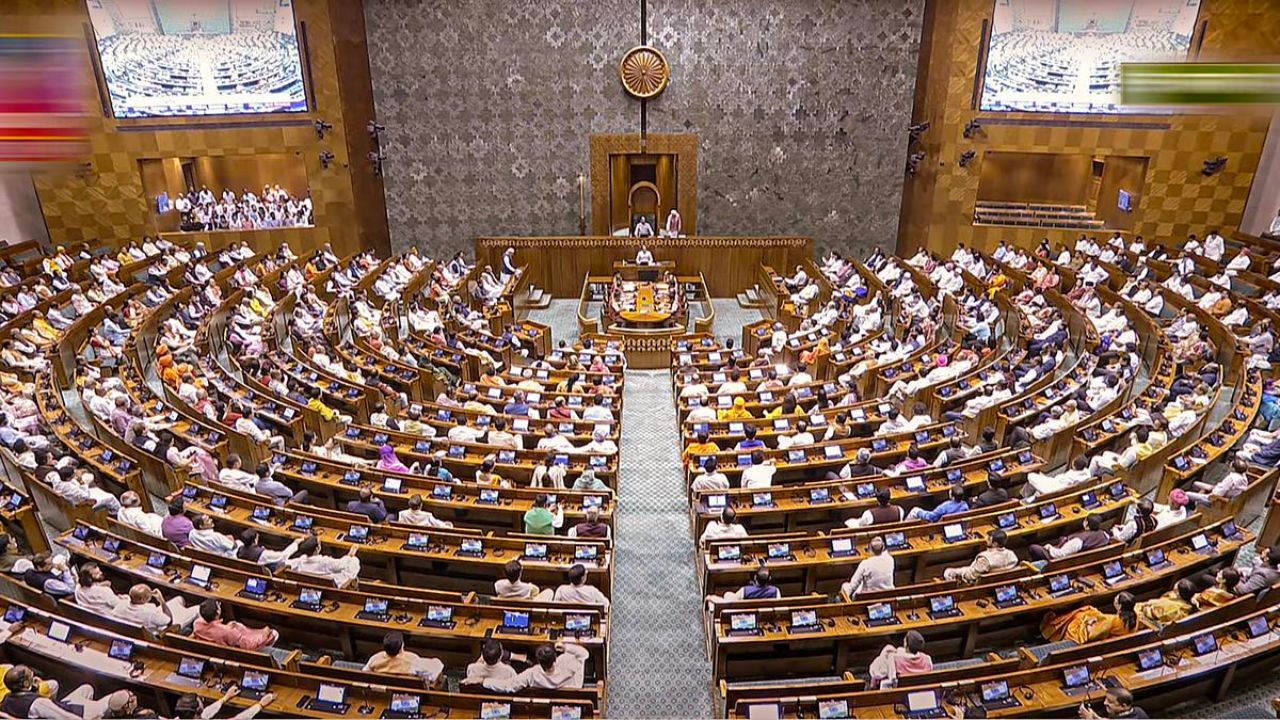The much-anticipated Women’s Reservation Bill was passed in the Lok Sabha on Tuesday, September 19, marking a significant step towards enhancing gender representation in India’s political landscape. After years of intense debate, the bill secured approval during the first session held in the New Parliament house.
Prime Minister Narendra Modi, on the second day of the special Parliamentary session, announced that the Women’s Reservation Bill received unanimous support during a crucial Union Cabinet meeting held the previous day.
The bill, which reserves 33 percent of seats for women in the Lok Sabha and State Assemblies, was introduced in the lower house by Minister of Law and Justice, Arjun Ram Meghwal, and successfully passed through a voice vote.
It is worth noting that the bill will come into effect following a delimitation exercise, with provisions for a 1/3 quota reserved for SC and ST candidates.
This historic move has been long-awaited and had been tabled several times over the past 27 years without being passed. Notably, it was last brought up in 2010 and successfully passed in the Rajya Sabha but faced challenges in the Lok Sabha. Minister Meghwal asserted that any bill passed by the Rajya Sabha but not considered by the Lok Sabha lapses.
However, the opposition presented a different perspective on the matter. Yogendra Yadav, Leader of Swaraj India, referred to the 108th amendment of the Constitution of India and argued that the bill had indeed been passed by the Rajya Sabha, emphasizing that the government could simply adopt this version for passage in the Lok Sabha, as bills introduced in the Rajya Sabha do not lapse.
Women's Reservation Bill (WRB) has already been passed by Rajya Sabha as 108th Constitution Amendment. The govt has to simply pick this (since bills introduced in RS do not lapse) version below and pass it in the Lok Sabha. It would also need to pass a law in both houses to… pic.twitter.com/5Y3muHN3tb— Yogendra Yadav (@_YogendraYadav) September 18, 2023
Opposition’s Perspective on the Women’s Reservation Bill
Congress
The Congress party strongly criticized the Women’s Reservation Bill, labeling it as “election jumla” (rhetoric) and a “huge betrayal of hopes of women.” They pointed out that the government stated that the reservation would only be effective following a Census and delimitation exercise, which is to be conducted after the bill’s enactment. Congress General Secretary Jairam Ramesh expressed concerns over whether the Census and delimitation would be completed before the 2024 elections, highlighting that the Narendra Modi government had not yet conducted the 2021 decadal Census.
In a season of election jumlas, this one is the biggest of them all! A huge betrayal of the hopes of crores of Indian women and girls.
As we had pointed out earlier, Modi government has not yet conducted the 2021 Decadal Census making India the only country in G20 that has…— Jairam Ramesh (@Jairam_Ramesh) September 19, 2023
AIMIM (All India Majlis-e-Ittehad-ul-Muslimeen)
AIMIM chief and Hyderabad Lok Sabha MP, Asaduddin Owaisi, voiced his party’s opposition to the Women’s Reservation Bill, emphasizing the absence of a quota for women from the Muslim and OBC (Other Backward Classes) communities in the bill. Owaisi argued that the bill should aim to provide representation to underrepresented groups and noted that out of 8992 MPs elected in the country’s history, only 520 are Muslims, with a significant gender deficit within that number. He criticized the bill for not including provisions for Muslim and OBC women, leading to their opposition to the legislation.
#WATCH | Delhi: On Women's Reservation Bill, AIMIM Chief Asaduddin Owaisi says, "…Who are you giving representation to? Those who don't have representation should be given representation. The major flaw in this bill is that there is no quota for Muslim women and so we are… pic.twitter.com/LIrU5RJiaQ— ANI (@ANI) September 19, 2023
Bahujan Samaj Party (BSP)
Mayawati, the leader of the BSP, announced her party’s support for any bill that allows reservation for women in Parliament and other legislatures, even if it does not meet their demand for a separate quota for SC, ST, and OBC women within the proposed reservation. Mayawati expressed the BSP’s desire to see women from the Scheduled Caste, Scheduled Tribe, and Other Backward Classes receive a distinct quota in the draft legislation.
The passing of the Women’s Reservation Bill in the Lok Sabha represents a significant milestone in India’s pursuit of gender equality and political representation, while the concerns raised by opposition parties underscore the complexity and diversity of perspectives surrounding this historic legislation.
Related












































